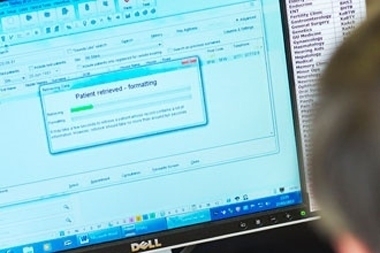GP patients ‘should expect’ data to be shared with the Home Office, says Government

The Government has rejected demands to block the Home Office from obtaining GP patient information, saying that patients should have ‘a reasonable expectation’ that their non-clinical data is shared between departments.
The Department of Health and Social Care was forced to set out its position following demands from the House of Commons Health Committee that it should ditch an agreement that allows the Home Office to access GP patient data to establish immigration status.
In its response, the Government claims that the ‘trusting relationship between doctors and patients’ is not damaged because no clinical data is shared, however GP leaders said this was ‘misleading’ and the GMC said it had ‘yet to be reassured’ about the arrangement.
The Government said the memorandum of understanding between NHS Digital, the Department of Health and Social Care and the Home Office, signed in January, was in ‘the public interest’.
According to DHSC, it protects against ‘immigration offenders [that] have committed other criminal offences, including violent or sexual offences’ and have since gone underground.
Between November 2017 and January 2018, NHS Digital approved 1,297 requests for information from the Home Office, with NHS Digital able to trace the individual 81% of the time.
The DHSC said: ‘We strongly disagree that the sharing of administrative, non-medical data held by the NHS to enable the investigation of criminal offences has significant implications for public confidence…
‘We do not consider that a person using the NHS can have a reasonable expectation when using this taxpayer-funded service that their non-medical data, which lies at the lower end of the privacy spectrum, will not be shared securely between other officers within government in exercise of their lawful powers in cases such as these.’
But Dr John Chisholm, BMA medical ethics committee chair and GP, said the agreement ‘is eroding the faith patients place in the medical profession.
He said that ‘if patients fear a visit to their doctor could mean their private data are used for purposes other than those for which they’re sought and given, it could have dangerous repercussions’.
Even by sharing non-medical data, patients could be deterred from visiting a GP, argued Dr Chisholm, which ‘could pose a wider public health risk if conditions aren’t diagnosed and treated’.
He added: ‘We’re still not convinced these disclosures meet the public interest standard set for doctors by the GMC, their regulator.’
GMC chief executive Charlie Massey said the GMC has ‘yet to be reassured that information will only be disclosed in cases where there is a clear public interest’.
He said: ‘We recognise that confidentiality is not absolute and there are circumstances where it is in the public interest to disclose information.’
He added that it is also ‘a matter of public interest if patients avoid seeking medical care due to’ immigration issues.
According to the DHSC, the Home Office only contacts NHS Digital for patient address data after other attempts to trace immigration offenders ‘have been unsuccessful’
Sam Smith, coordinator of independent data-monitoring charity medConfidential, told Pulse: ‘Under any other Prime Minister, it would be extraordinary for the [DHSC] to assert that there is no duty of confidence over non-clinical data.’
He added: ‘For GPs who are concerned about their patients, and the workload generated for them by NHS Digital giving out contact details, there are options that nullify’s the Home Office’s approach.’
Medical charity Doctors of the World created the ‘Safe Surgeries’ toolkit last year for GPs who want to keep information about certain patients out of NHS records to prevent it being passed on to the Home Office.
The net widens on patient data sharing
This is the latest in patient data sharing, which has been hitting headlines since early 2017.
Pulse first reported that the NHS started sharing patient’s personal information, including registered address and their GP’s contact details, with the Home Office to trace immigration offenders and vulnerable people in January 2017.
However, the GMC, Public Health England and England’s National Data Guardian raised concerns about the agreement, warning that it is putting public health at ‘serious risk’.
The Health Select Committee launched an inquiry into the agreement, hearing that GP practices should not be turned into a ‘place of fear’ for migrant patients.
Meanwhile, Pulse revealed last year that thousands of GP practices may have inadvertently been in breach of data protection legislation after activating SystmOne’s enhanced data sharing function, which allows hospitals, care homes and community services to access GP patient records and leave their own notes.
SystmOne has since updated the function to give GPs ‘additional controls’ over how the records are shared.









